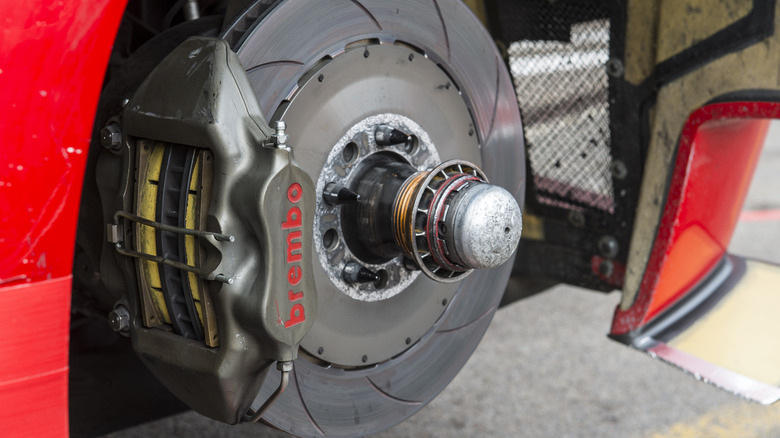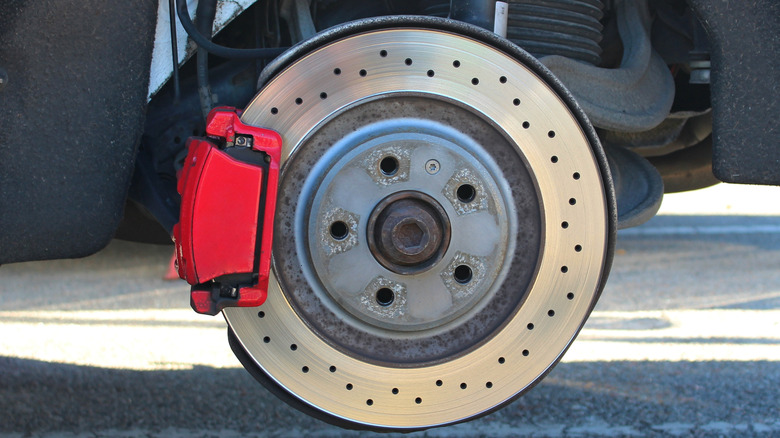Unless your daily driver is a classic Mini, or something of a similar ilk with drum brakes in all four corners, you’ll have calipers providing the stopping force each time you hit the brake pedal. Brake calipers do this by clamping against a brake pad, and therefore pushing the pad against the brake rotor. This friction causes the rotational speed of the rotor to slow down, thus also slowing the car down. It’s a pretty simple system using hydraulic brake fluid, which is pressurized when you apply pressure to the brake pedal.
However simple the system may be in principle, automakers and engineers have found ways to complicate the system by introducing a number of variables. So, not only do drivers have the choice of drilled or slotted rotors, plus performance brake pads, but also fixed and floating calipers, too. The main difference between fixed and floating calipers is largely explained in the name; fixed calipers stay in a single location atop the brake disc, whereas floating calipers move or “float” in position.
Fixed calipers will have pistons situated either side of the rotor, and when pressure is applied via the brake pedal, the pistons actuate on both sides, applying an even braking force against the pads on both sides of the rotor. With a floating caliper, pistons are located on one side only. When braking, the pistons push the pad against the rotor from one side, and pull the caliper in from the other, using the sliding or “floating” mechanism.
Fixed vs floating: how braking performance is affected
Fixed brake calipers are the preferred choice when it comes to performance applications. There are multiple reasons why this design is better suited to performance cars, with one being the reduced travel of the brake pedal itself. With pistons situated on each side of the rotor, the pistons themselves have a smaller distance to cover, which in turn equates to a firmer brake pedal; perfect for on-track and spirited driving.
Furthermore, fixed brake calipers can dissipate heat more effectively, which is paramount when it comes to performance. Hot brakes equate to hot braking fluid, and hot braking fluid can be dangerous when driving on track, as it leads to fading brake performance. A fixed system also applies pressure evenly, which translates through to even brake pad wear; the opposite is true of a floating system, which can cause the pads to wear unevenly.
Floating brake calipers systems do have their benefits, though. Namely, they are cheap to produce, which makes them perfect for fitting to typical commuter cars. While they won’t be as effective when carving up corners on the local race track, floating calipers are more than adequate at dealing with the braking demands of everyday traffic. The slide pins can seize up over time, affecting performance, which is why it’s important to have regular inspections on your car, or consult a mechanic if something feels wrong or uneven with your braking performance.


